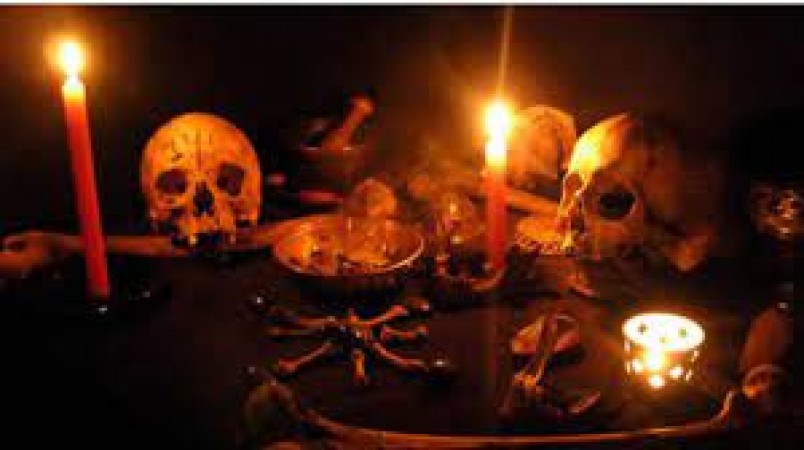
Black magic has been a subject of fascination and fear for centuries. People have debated its existence, effects, and moral implications. In this article, we will delve into the world of black magic, exploring its origins, beliefs, practices, and its impact on society. By the end of this journey, you will have a better understanding of what black magic truly is and how it shapes our lives.
Defining Black Magic
Black magic, also known as dark magic or dark arts, is a form of supernatural practice used to manipulate and control natural forces to achieve specific goals. These goals can range from causing harm to others to obtaining power, wealth, or knowledge. Black magic is often associated with malevolence, as its intentions are generally negative or harmful.
The Origins of Black Magic
The roots of black magic can be traced back to ancient civilizations. Early practitioners believed that harnessing dark forces could give them an advantage over their enemies or fulfill their desires. These practices were deeply intertwined with religious and spiritual beliefs, and black magic rituals were often performed in secret.
Beliefs and Practices Across Cultures
Throughout history, different cultures have had their beliefs and practices related to black magic. From Voodoo in Haiti to the Dark Arts in medieval Europe, each culture has its unique take on how to wield dark forces. These practices often involve invoking spirits, using specific symbols, and performing rituals to achieve desired outcomes.
Understanding the Different Types of Black Magic
Black magic encompasses a variety of practices, each with its own focus and methods. Some of the common types of black magic include:
5.1. Curses and Hexes
Curses and hexes are aimed at causing harm or misfortune to a specific person or group. Practitioners believe that by invoking dark energies, they can bring about the intended negative effects on their targets.
5.2. Summoning Spirits
This form of black magic involves summoning and controlling spirits to carry out the practitioner's bidding. The summoned spirits can be benevolent or malevolent, depending on the practitioner's intentions.
5.3. Necromancy
Necromancy revolves around communicating with the deceased or manipulating the spirits of the dead. It is believed that the knowledge and power of the deceased can be harnessed through these practices.
5.4. Dark Rituals
Dark rituals are elaborate ceremonies performed to invoke supernatural forces and channel their power. These rituals often involve sacrifice and other symbolic acts.
The Role of Black Magic in History
Throughout history, black magic has played a significant role in shaping events. From ancient civilizations to medieval times, stories of witches, warlocks, and dark sorcery have influenced the course of history, sometimes sparking witch hunts and mass hysteria.
Modern Perceptions and Misconceptions
In modern times, black magic continues to intrigue and scare people. While some believe in its potency, others dismiss it as mere superstition. The media and popular culture have contributed to both perpetuating myths about black magic and demystifying some aspects of it.
The Influence of Black Magic in Pop Culture
Books, movies, and television shows have popularized black magic, often portraying it as a powerful and mysterious force. From classic literature like Shakespeare's "Macbeth" to contemporary urban fantasy novels, black magic remains a compelling element in storytelling.
Signs and Symptoms of Black Magic
Identifying the effects of black magic can be challenging, as they often manifest as unexplained physical or mental issues. Some common signs include sudden health problems, persistent bad luck, and unusual behavior.
Protection and Warding Off Black Magic
Protecting oneself from black magic involves various practices, from wearing talismans and amulets to performing cleansing rituals. Believers seek divine protection to shield themselves from malevolent forces.
Black Magic vs. White Magic
Black magic is often contrasted with white magic, which aims to achieve positive outcomes and help others without causing harm. The ethical debate between these two practices has been ongoing for centuries.
Addressing Ethical Concerns
The use of black magic raises ethical questions, as it involves manipulating the natural order and potentially causing harm to others. The moral implications of practicing black magic have led to conflicting viewpoints among its proponents and critics.
The Impact of Black Magic on Mental Health
Belief in black magic can have a profound psychological impact on individuals. The fear of being affected by dark forces can lead to anxiety, paranoia, and even obsessive behaviors.
Breaking Free from Black Magic Influence
For those who believe they are under the influence of black magic, breaking free from its grip can be a daunting task. Seeking professional help and finding support from loved ones are essential steps in reclaiming one's life. Black magic has remained a mysterious and controversial topic throughout human history. Whether it's a product of ancient beliefs or a reflection of our fears and desires, its impact on society is undeniable. By understanding the origins, practices, and beliefs associated with black magic, we gain insight into the complexities of human nature and our quest for power and control.
Unveiling the Importance of Rape Kits in Sexual Assault Investigatio
Microsoft to Enlist Puneet Chandok as the next Vice President at India branch